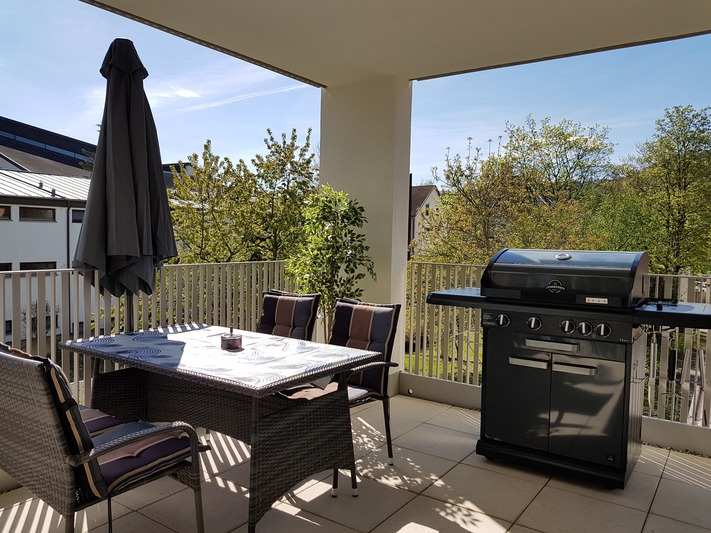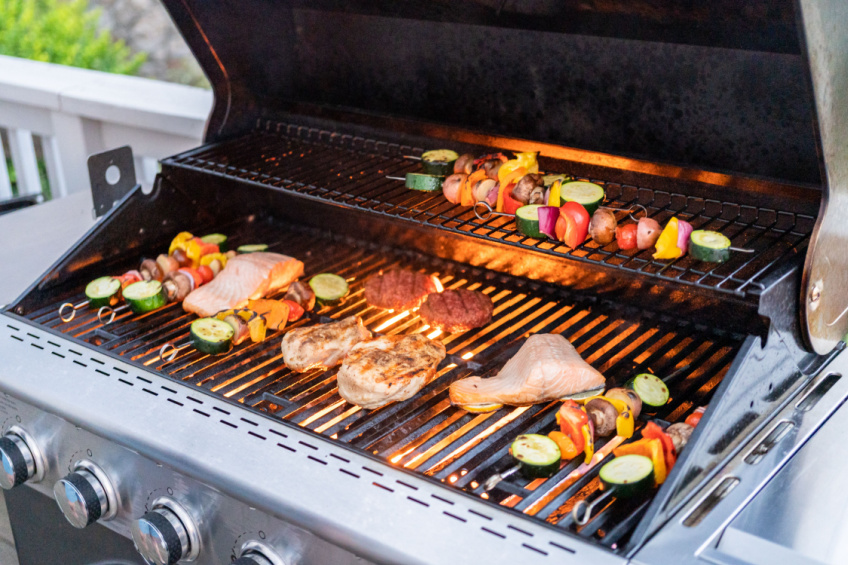 Gas grills have become increasingly popular in recent years, and for good reason.
Gas grills have become increasingly popular in recent years, and for good reason.
Many people prefer gas grills over other types of grills, such as charcoal or electric, for a variety of reasons.
In this article, we will explore why gas grills are so popular and why people prefer them.
One of the main reasons people prefer gas grills is convenience.
Gas grills are easy to use and require little preparation time.
Unlike charcoal grills, which require time to light and heat up, gas grills can be turned on with the push of a button.
This makes them ideal for busy individuals or families who want to enjoy a quick and easy meal without the hassle of preparing and lighting charcoal.
Another reason people prefer gas grills is versatility.
Gas grills allow for precise temperature control, which makes it easy to cook a variety of foods, from burgers and hot dogs to more delicate items like fish and vegetables.
in addition, gas grills often come with additional features such as side burners, rotisserie attachments, and built-in thermometers, making them a versatile and convenient option for outdoor cooking.
Advantages of Gas Grills
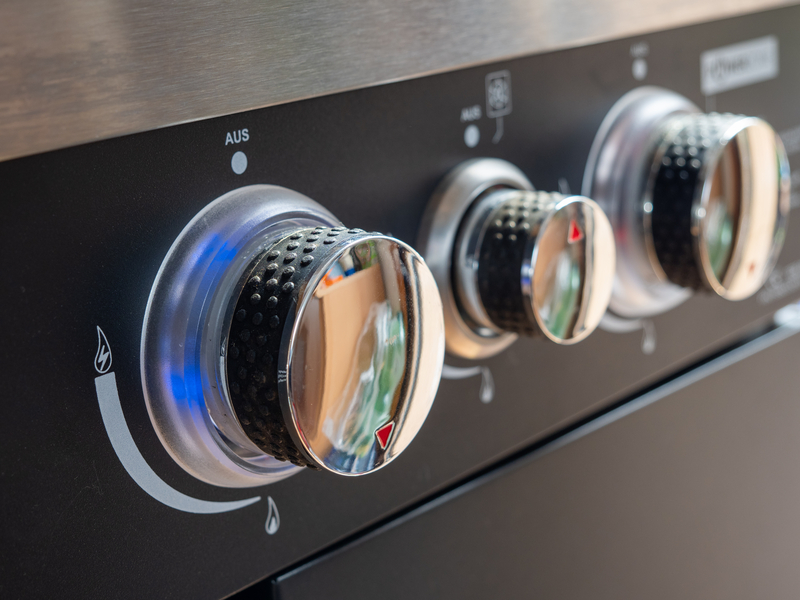
Gas grills have become increasingly popular over the years due to their convenience, ease of use, and versatility.
In this section, we will explore some of the advantages of gas grills.
Convenience and Control
One of the main benefits of gas grills is their convenience and control.
With just the push of a button, you can ignite the grill and have it ready to cook in just a few minutes.
This is in contrast to charcoal grills, which can take up to 30 minutes to heat up and require more effort to light.
Gas grills also offer precise temperature control, allowing you to adjust the heat to your desired level.
This makes it easier to cook a variety of foods, from delicate vegetables to thick steaks.
Additionally, gas grills often come with features such as side burners and rotisserie attachments, which can further enhance your cooking experience.
Ease of Maintenance
Another advantage of gas grills is their ease of maintenance.
Unlike charcoal grills, which require frequent cleaning and ash removal, gas grills are relatively easy to clean and maintain.
Many gas grills come with removable drip trays and grease management systems, which make cleaning up after a cookout a breeze.
Gas grills also tend to have fewer parts that can wear out or break, which means they require less maintenance over time.
This can save you both time and money in the long run.
Versatility
Finally, gas grills are known for their versatility. With a gas grill, you can cook a wide range of foods, from burgers and hot dogs to fish and vegetables.
Gas grills also allow you to use different cooking methods, such as direct and indirect heat, which can help you achieve the perfect sear or cook your food evenly.
Gas grills are also great for entertaining, as they allow you to cook for a large group of people at once.
Whether you’re hosting a backyard barbecue or a family gathering, a gas grill can help you feed everyone quickly and easily.
In conclusion, gas grills offer a range of benefits that make them a popular choice among grill enthusiasts.
From convenience and control to ease of maintenance and versatility, gas grills are a great investment for anyone who loves to cook outdoors.
Flavor and Cooking Quality
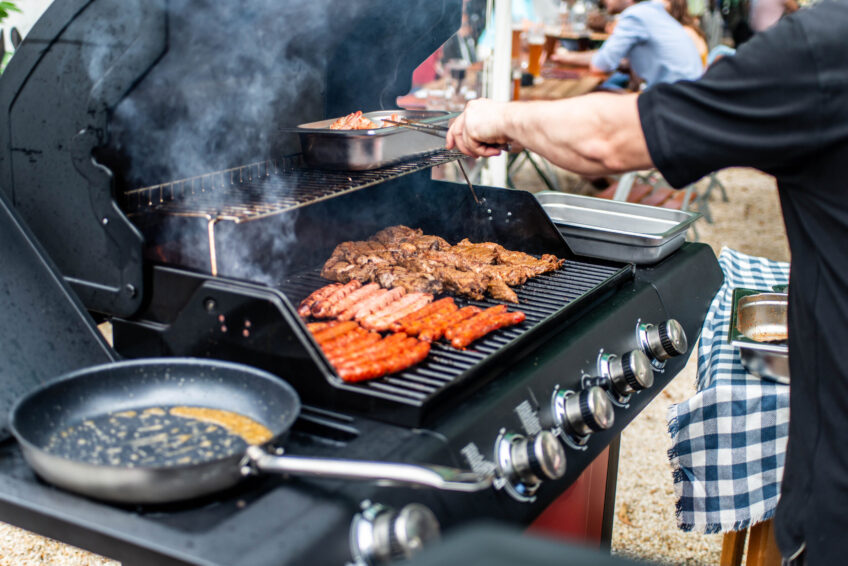 Gas grills have been gaining popularity over the years due to their convenience and ease of use.
Gas grills have been gaining popularity over the years due to their convenience and ease of use.
However, some people still prefer charcoal grills because they believe that gas grills cannot match the flavor and cooking quality of charcoal grills.
In this section, we will explore whether this is true.
Taste Comparison with Charcoal Grills
Many people believe that charcoal grills provide a smoky flavor that gas grills cannot replicate.
While it is true that charcoal grills can provide a unique flavor, gas grills are not far behind.
In fact, many gas grills come with features such as smoke boxes and flavorizer bars that can help mimic the smoky flavor of charcoal grills.
Moreover, gas grills offer the advantage of being able to control the flavor more precisely.
With a gas grill, you can adjust the temperature and the amount of smoke to get the desired flavor.
This level of control is not possible with a charcoal grill, where the temperature and smoke level are determined by the amount of charcoal and wood chips used.
Heat Distribution and Consistency
One of the advantages of gas grills is their ability to distribute heat evenly across the cooking surface.
This is because gas grills come with burners that can be adjusted to provide different levels of heat.
This means that you can cook different types of food at the same time without worrying about hot spots or cold spots.
Furthermore, gas grills provide consistent heat throughout the cooking process.
Unlike charcoal grills, where the temperature can fluctuate depending on the amount of charcoal and wood chips used, gas grills provide a constant heat source.
This means that you can cook your food evenly without having to worry about adjusting the temperature constantly.
In conclusion, while charcoal grills do provide a unique smoky flavor, gas grills are not far behind.
Gas grills offer the advantage of being able to control the flavor more precisely, while also providing even heat distribution and consistency.
Ultimately, the choice between gas and charcoal grills comes down to personal preference and convenience.
Health Considerations
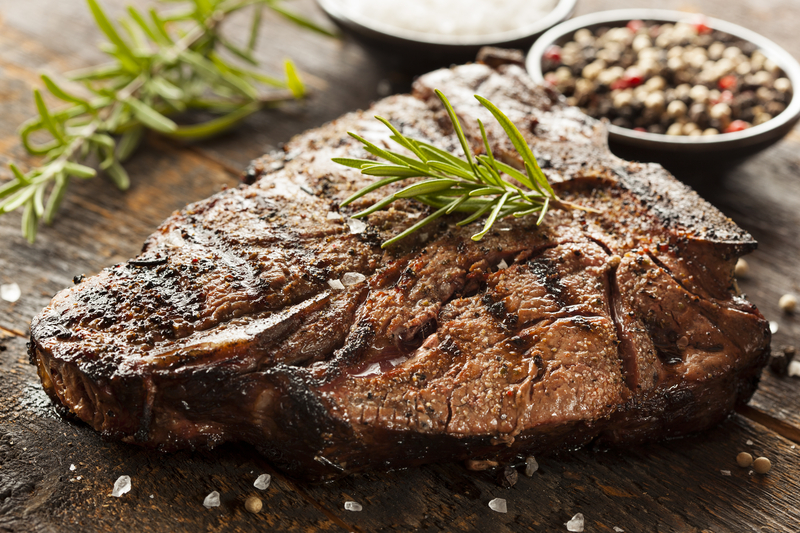
Gas grills offer several health benefits over other cooking methods.
Here are some of the most important health considerations to keep in mind when choosing a gas grill.
Reduced Carcinogens
One of the biggest health benefits of gas grills is that they produce fewer carcinogens than charcoal grills.
Carcinogens are chemicals that can cause cancer, and they are produced when meat is cooked over an open flame.
Gas grills use a more controlled heat source, which means that the meat is less likely to be exposed to high levels of carcinogens.
Fat and Grease Management
Another health benefit of gas grills is that they are better at managing fat and grease.
When meat is cooked on a gas grill, the fat drips down into a tray, which helps to reduce the amount of fat that is absorbed by the meat.
This means that gas-grilled meat is often leaner and healthier than meat cooked on a charcoal grill.
Gas grills also tend to produce less smoke than charcoal grills, which means that the meat is less likely to be exposed to harmful smoke particles.
This can be especially important for people with respiratory issues.
In conclusion, gas grills offer several health benefits over other cooking methods.
They produce fewer carcinogens and are better at managing fat and grease, which can help to reduce the risk of heart disease and other health problems.
Safety Aspects
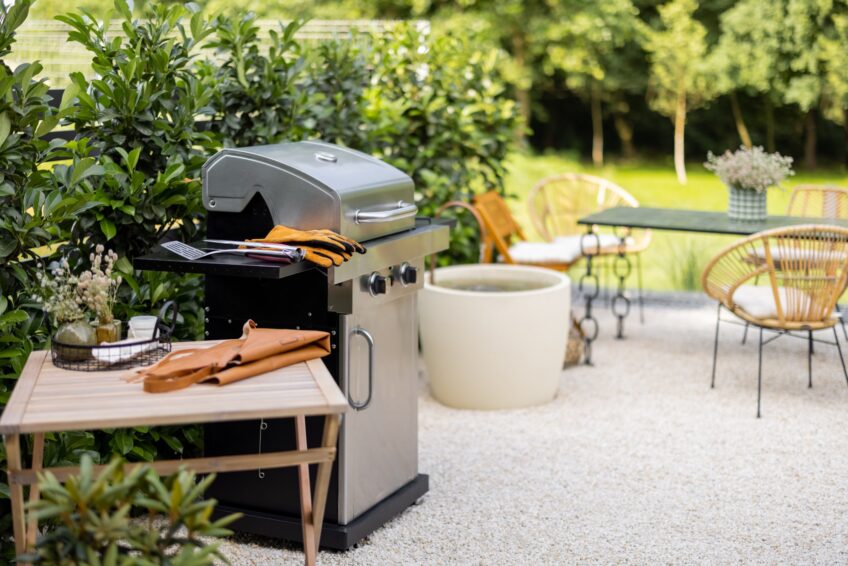 Gas grills are known for their safety features, which make them a popular choice among grill enthusiasts.
Gas grills are known for their safety features, which make them a popular choice among grill enthusiasts.
Here are some of the safety aspects of gas grills that make them a preferred option:
Design and Build
Gas grills are designed with safety in mind.
They are built with sturdy materials that can withstand high temperatures and are resistant to corrosion and rust.
The grills are also designed with safety features such as a built-in thermometer, which allows the user to monitor the temperature of the grill and prevent overheating.
Operational Safety Features
Gas grills come with a range of operational safety features that make them safer to use than traditional charcoal grills.
For example, gas grills have an automatic shut-off valve that turns off the gas supply if the flame goes out.
This feature prevents gas from leaking into the air and causing an explosion.
Additionally, gas grills have a built-in ignition system that eliminates the need for matches or lighters.
This feature reduces the risk of accidental fires caused by stray sparks.
Overall, gas grills are a safer option for grilling than traditional charcoal grills.
They are designed with safety in mind and come with a range of safety features that make them easy to use and reduce the risk of accidents.
Cost Implications
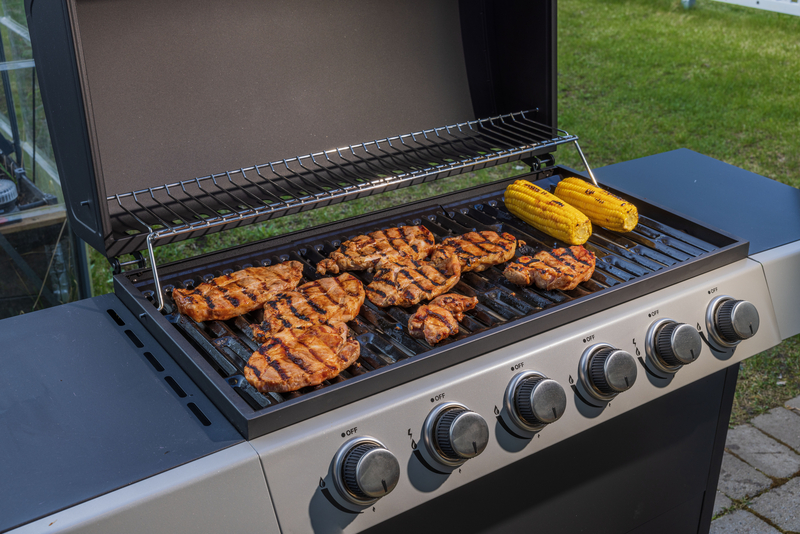
Initial Investment
One of the main factors that make gas grills popular is their affordability.
While high-end models can be expensive, most gas grills are generally cheaper than their charcoal counterparts.
This is especially true for portable models, which can be purchased for as little as $100.
Additionally, gas grills do not require any additional equipment such as charcoal chimneys or lighters, which can further reduce the initial investment.
Long-Term Expenses
While gas grills may be cheaper to purchase initially, they tend to be more expensive to operate in the long run.
This is because they require propane or natural gas, which can be costly to refill.
Additionally, gas grills tend to have more parts that can break down, such as burners and ignition systems, which can add to the long-term expenses.
However, gas grills tend to last longer than charcoal grills, which can offset some of these costs.
Overall, gas grills are a cost-effective option for those who want to enjoy outdoor cooking without breaking the bank.
While they may have some long-term expenses, their initial affordability and convenience make them a popular choice among many grill enthusiasts.
Some of the cons of a gas grill include the fact that they do not provide the same smoky flavor as charcoal grills, and they can be less portable if they require a gas line.
However, for those who prioritize convenience and affordability, gas grills are an excellent option.
Environmental Impact
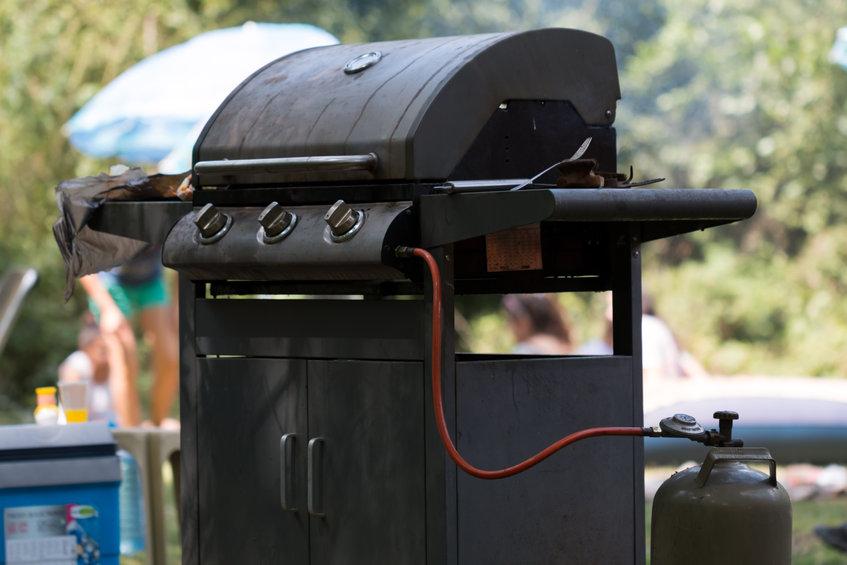 Gas grills have a significant impact on the environment.
Gas grills have a significant impact on the environment.
This section will explore the environmental impact of gas grills and why people still prefer them.
Emissions and Efficiency
Gas grills are known for their efficiency and low emissions.
They emit fewer greenhouse gases than charcoal grills, which is a significant advantage.
Gas grills are also more efficient than charcoal grills, meaning they use less fuel to cook the same amount of food.
This efficiency reduces the amount of fuel needed, which in turn reduces emissions.
Sustainability Factors
Gas grills are also more sustainable than charcoal grills.
Gas grills use propane or natural gas, which are both cleaner-burning fuels than charcoal.
This means that gas grills have a lower impact on the environment, as they produce fewer emissions and require fewer resources to produce.
Additionally, gas grills can be used for longer periods of time than charcoal grills, which reduces waste and the need for replacement.
Overall, while gas grills do have an impact on the environment, they are a more sustainable and efficient option than charcoal grills.
By using cleaner-burning fuels and producing fewer emissions, gas grills are a better choice for those who are concerned about the environment.
Selection Tips
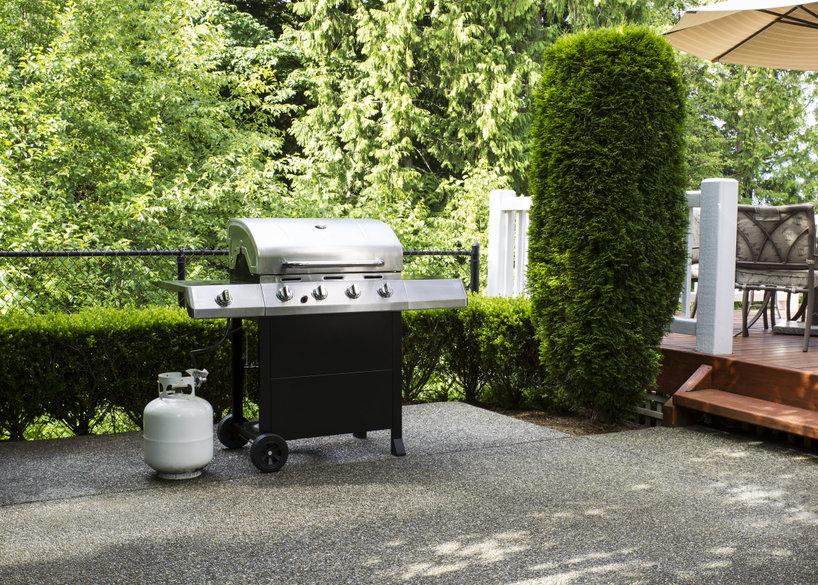
When choosing a gas grill, it is important to consider several factors to ensure that you get the best grill for your needs.
Here are some tips to help you make an informed decision.
Understanding Grill Specifications
Before purchasing a gas grill, it is important to understand the various specifications that are associated with it.
The following are some of the most important specifications to consider:
- BTU (British Thermal Units): This is a measure of the amount of heat that a grill can produce. A higher BTU rating does not necessarily mean that a grill is better, as other factors such as the grill’s design and construction can also affect its performance.
- Cooking Area: The size of the cooking area is an important consideration, as it will determine how much food you can cook at once. Make sure to choose a grill with a cooking area that is large enough to meet your needs.
- Grates: The type of grates that a grill has can affect its performance. Cast iron grates are durable and retain heat well, while stainless steel grates are easier to clean.
Assessing Features and Accessories
In addition to the grill’s specifications, it is also important to consider the features and accessories that are available.
The following are some of the most common features and accessories that you may want to consider:
- Side Burners: Side burners can be used to cook side dishes or sauces while you grill your main course.
- Rotisserie: A rotisserie can be used to cook large cuts of meat evenly.
- Smoker Box: A smoker box can be used to add smoky flavor to your food.
- Thermometer: A built-in thermometer can help you monitor the temperature of your grill and ensure that your food is cooked to perfection.
By considering these factors, you can choose a gas grill that will meet your needs and provide you with delicious, perfectly cooked food every time.
Maintenance and Care
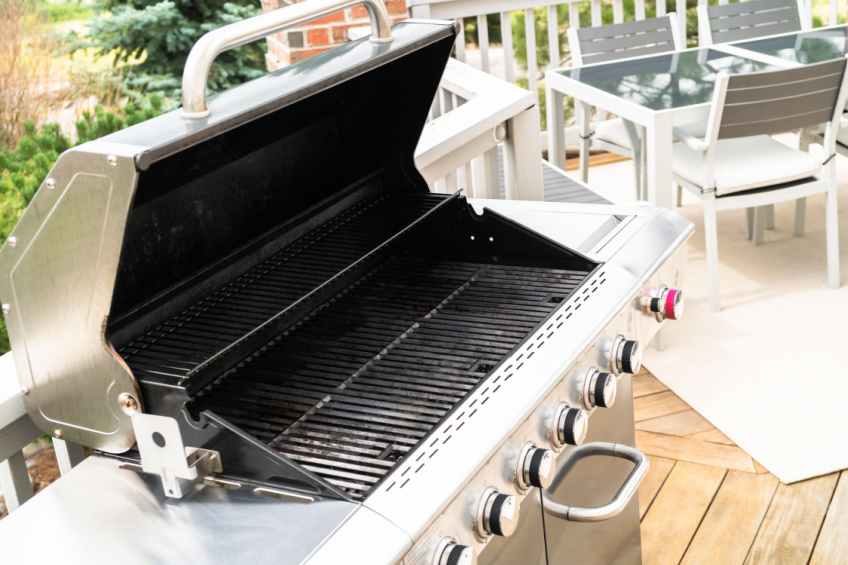
Cleaning Procedures
One of the primary reasons people prefer gas grills is because they are easier to maintain and clean compared to charcoal grills.
After each use, it is recommended to clean the grates with a grill brush to remove any food debris.
Additionally, the drip tray should be emptied and cleaned to prevent grease buildup.
A mixture of warm water and soap can be used to clean the exterior of the grill, but avoid using abrasive cleaners that can damage the finish.
For a deep clean, the grates and burners can be removed and soaked in warm soapy water.
After soaking, use a grill brush to scrub away any remaining debris.
It is important to thoroughly dry the grates and burners before placing them back into the grill.
Regular Check-Ups and Repairs
To ensure the longevity of a gas grill, it is important to conduct regular check-ups and repairs.
This includes inspecting the hoses and connections for any leaks or damage, and replacing any worn out or damaged parts.
It is also recommended to clean the burners and inspect the igniter system to ensure it is functioning properly.
Regular maintenance and repairs not only extend the life of the grill, but also ensure that it is functioning safely and efficiently.
It is important to refer to the manufacturer’s instructions for specific maintenance and care guidelines.
Popular Models of Gas Grills
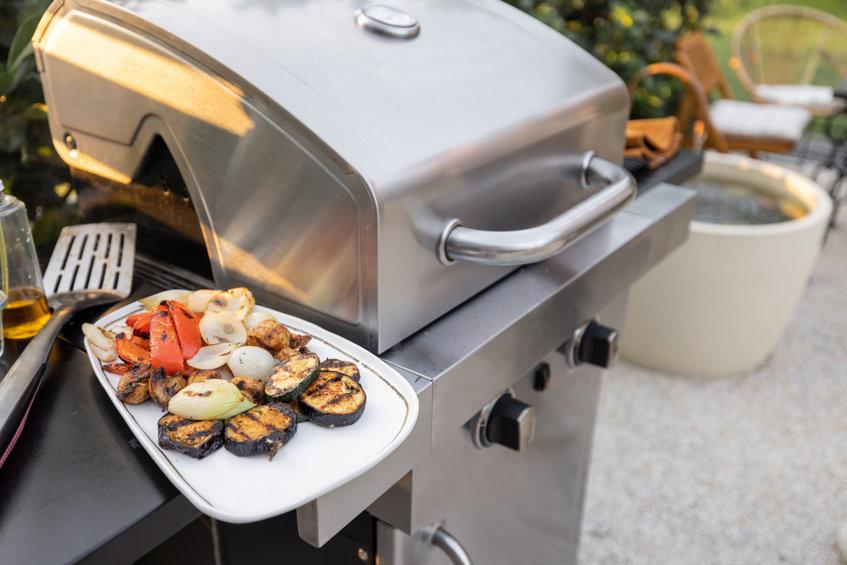
Gas grills have surged in popularity in recent years, captivating outdoor cooking enthusiasts with their convenience, versatility, and efficiency.
Among the plethora of gas grill options available, certain models stand out for their exceptional quality, performance, and popularity among consumers.
Here, we spotlight three top-rated gas grills renowned for their reliability, innovative features, and overall cooking prowess.
Weber Spirit II E-310
This grill offers excellent performance, durability, and features from a trusted brand.
The Weber II e-310 provides a spacious cooking area, powerful burners, and convenient features like the built-in thermometer and easy-to-clean grease management system.
Napoleon Rogue XT 425
Known for its high-quality construction and innovative features, the Napoleon Rogue XT 425 offers precise temperature control, even heat distribution, and versatility for various grilling techniques.
It comes with durable stainless steel construction and foldable side shelves for added convenience.
Char-Broil Performance Series 4-Burner Gas Grill
Char-Broil is well-regarded for offering affordable yet reliable gas grills.
The Performance Series 4-Burner Gas Grill provides ample cooking space, powerful burners, and features like a side burner and electronic ignition, making it a popular choice among grill enthusiasts.
As outdoor cooking continues to evolve, gas grills remain at the forefront, captivating grill enthusiasts with their unparalleled convenience, versatility, and efficiency.
With a wealth of features and benefits, coupled with top-rated models like the Weber E-310, Napoleon Rogue, and Char-Broil Performance, gas grills offer an enticing blend of performance and reliability for all your grilling adventures.
Bottom Line – Why Do People Prefer Gas Grills?
